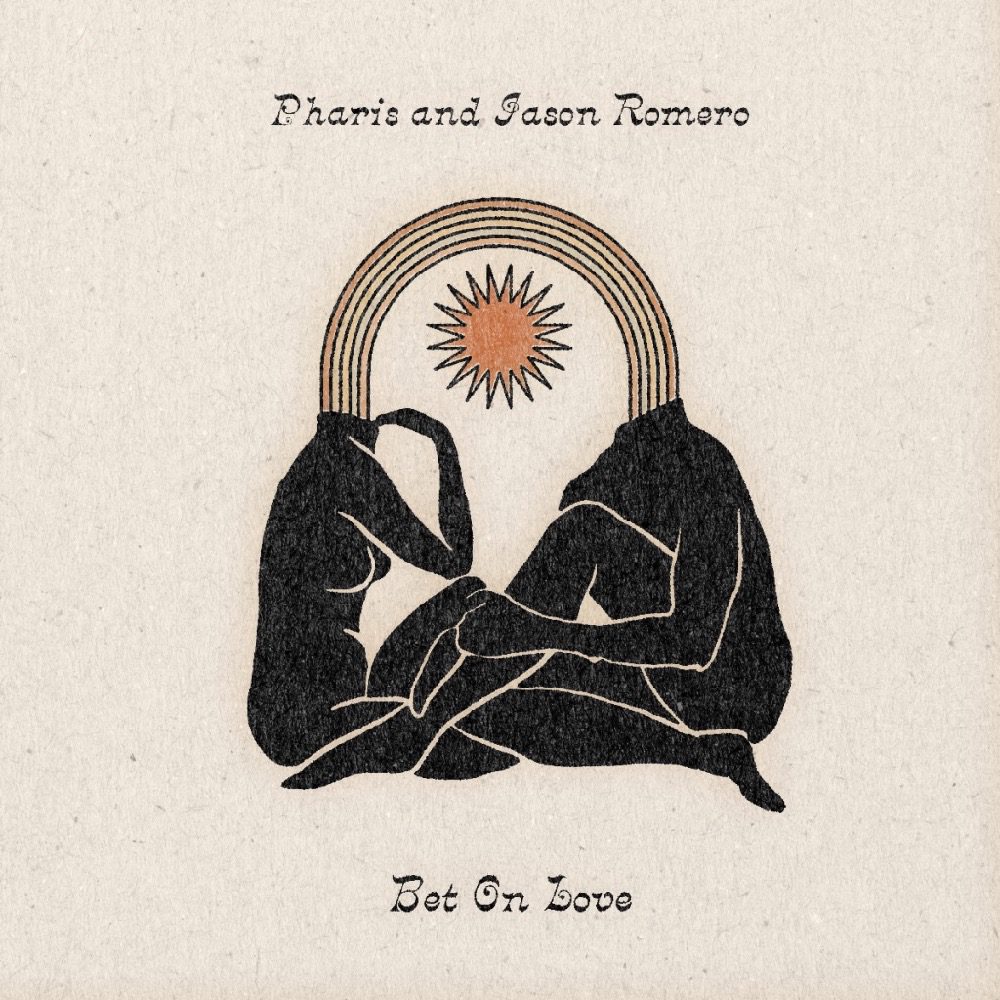Pharis and Jason Romero Bet on Songs that Hold Out Beauty and Hope

I have a distinct memory of opening my review copy of Pharis and Jason Romero’s second album, Long Gone Outwest Blues, back in 2013. Mostly because the packaging has such a distinctive design: a silhouette of a wolf filled with a landscape, with text in bold letters along the side. (This was roughly five years before the rest of the Americana world remembered it was in love with ’70s aesthetic.) Beyond looks, though, the couple’s synergy has kept me eagerly waiting for my next (now digital) care package. 2020’s entry, Bet on Love, does not disappoint — sonically or aesthetically.
It’s surely that attention to detail that has led the Romeros to build the life they have: a thriving custom banjo business (detailed in the Summer 2020 issue of No Depression), the ability to tour selectively as they raise their two children in rural British Columbia, and co-crafting intimate and hopeful songs on top of it all.
You can hear these varied aspects of Pharis and Jason’s work in the instrumental “New Caledonia,” an instrumental track featuring Jason’s hand-crafted gourd banjo as well as his own hot-shot picking. “New Caledonia” arrives in the middle of Bet on Love, creating an emotional transition between the first side’s confident trot and the second half’s introspection.
In this day and age — I don’t simply mean the global pandemic, let’s remember that things were generally a bummer even prior to March — it’s important to recognize songwriters who can capture happiness while avoiding the saccharine. On “Right,” the Romeros’ harmonies intertwine to help us capture those moments where we find ourselves feeling most connected to the Mystery. The album’s title track, “Bet on Love,” is defiant and almost ominous, sung in an distinctive key.
In Bet on Love’s latter half, those emotions become a bit more complicated. “We All Fall,” reminiscent of Gillian Welch, approaches the same themes as “Bet on Love” — the importance of unity in adversity. Yet “We All Fall” flips that certainty into consolation. To me, pairing the songs in this way is an illustration that there are universal truths, sometimes we just need to take different paths to arrive there.
Overall, as I listened to Bet on Love, I admired the amount of control the Romeros have over their craft. For them, it goes beyond singing or even sound engineering (the album was recorded in their banjo shop). To have a say in the very tone of the instrument they play, to envision nearly every minute detail of this album and execute it — few people can really steep themselves so much in their art, and it makes Pharis and Jason Romero’s accomplishments on this album all the more impressive.



